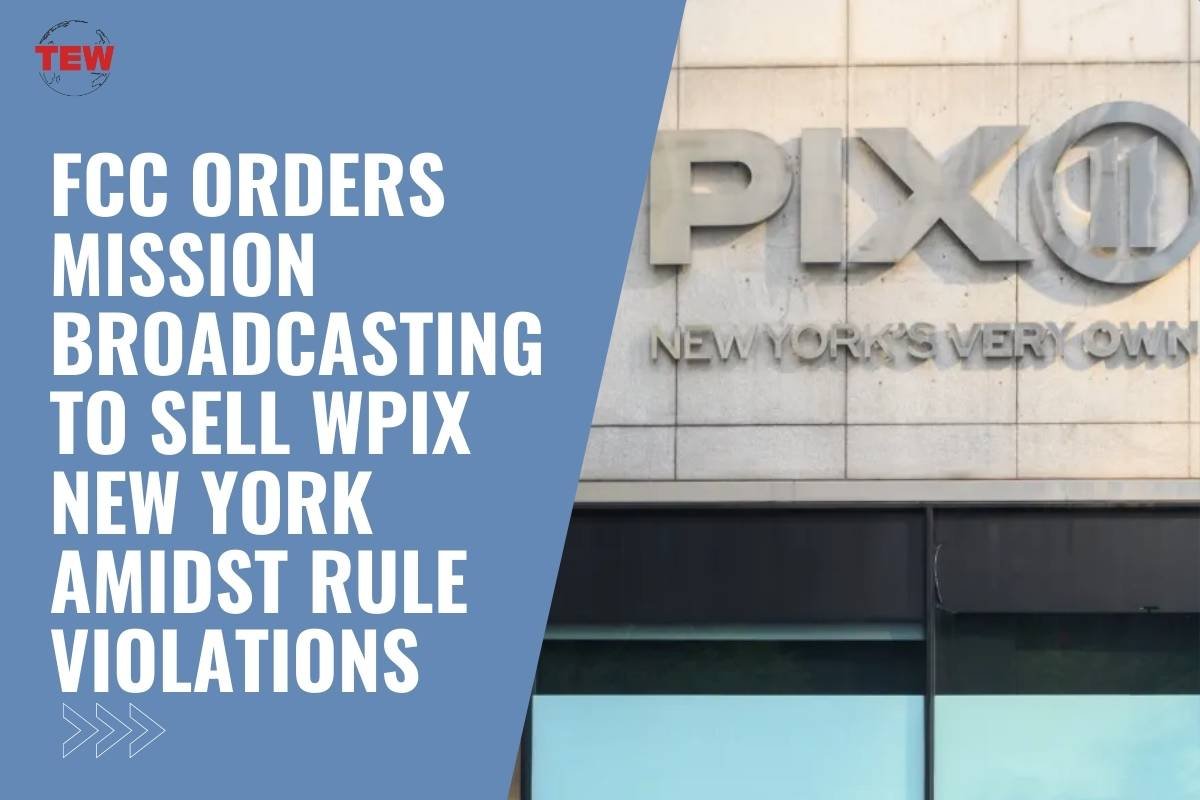(Source-Noam-Galai_Getty-Images)
The Federal Communications Commission (FCC) has mandated Mission Broadcasting to divest WPIX New York and imposed fines exceeding $1.2 million on Nexstar Media Group for breaching agency regulations, citing unauthorized control over the station.
In a decisive move, the FCC concluded that Mission Broadcasting and Nexstar Media Group had committed apparent willful and repeated violations. As a consequence, Mission Broadcasting has been ordered to pay a forfeiture of $612,395, the maximum penalty permissible under FCC rules. Reacting to the ruling, Nexstar expressed its intent to vigorously challenge the decision, asserting that it has complied with FCC regulations since Mission’s acquisition of WPIX in 2020.
De Facto Control and Ownership Cap Violation
The crux of the Federal Communications Commission’s ruling lies in Nexstar’s de facto control over WPIX New York, facilitated through a series of management agreements despite not having formal approval. The agency noted that Nexstar’s operational involvement, including programming, advertising, and revenue collection, constituted a violation of FCC regulations. Furthermore, the arrangement breached the 39% station ownership cap, prompting Nexstar to opt for the divestment of WPIX and WGN Chicago following its acquisition of Tribune Media in 2019.
Nexstar CEO Perry Sook expressed disappointment with the FCC’s action, emphasizing the company’s commitment to compliance and its intention to dispute the ruling vigorously. He highlighted Nexstar’s adherence to FCC regulations since Mission’s acquisition of WPIX and the subsequent divestment process initiated by Nexstar.
Mission Broadcasting’s Stand
Dennis Thatcher, president of Mission Broadcasting, issued a statement defending the company’s track record and vowing to contest the FCC ruling. Thatcher emphasized the Mission’s history of transparent operations and adherence to regulatory guidelines. He refuted the FCC’s characterization of events, labeling it as “revisionist history” and asserting Mission’s commitment to upholding the law.
Commissioner Brendan Carr, in a concurring statement, raised concerns regarding the FCC’s allegations against Nexstar and Mission. Carr underscored the need for scrutiny of the evidence presented by the agency, particularly in light of prior FCC approvals. He cautioned against undermining the reliance on previous Federal Communications Commission decisions and advocated for a balanced approach to regulatory oversight.
The FCC’s ruling signifies a pivotal development in the media landscape, highlighting the regulatory scrutiny faced by industry players and the imperative of compliance with Federal Communications Commission guidelines. As Mission Broadcasting and Nexstar Media Group prepare to contest the ruling, the outcome of their legal challenges will have significant implications for their operations and the broader media market.





